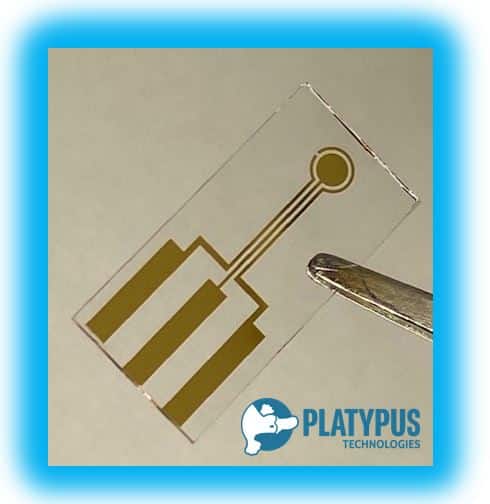What is a Disk Electrode Used For?
Disk electrodes are one of the essential components for performing many electrochemical experiments. Measurements such as cyclic voltammetry are widely used methods for the characterization of nearly any material or process that involves electron transfer – something ubiquitous in any material or component that will be used as part of an electronic system.
What is a disk electrode?
Any voltammetry experiment or type of electrochemical impedance spectroscopy requires the use of an electrode. Many electrochemical setups use a three electrode mode, and one of these is often the disk electrode.

The three electrodes can be characterized as the working electrode – the material of interest, a counter electrode and a reference electrode. Disk electrodes are often used for the working electrode, but all three electrodes can be disk electrodes.
The advantage of using disk electrodes is that the diffusion behavior of the electrode is different from a standard hemispherical structure and the flux can be higher. Some disk electrodes can be made to rotate as well to encourage stirring and measure the rate of solution flow in an experiment.
There are many different constructions for a disk electrode, but they are generally circular with a small ring around the edge. A disk electrode can be micromachined to a very small size and disk electrodes are also commonly used for cost-efficient disposable electrodes.
Key Applications
Key applications of disk electrodes are for different electrochemical techniques for substrate analysis. Very small disk electrodes can be used for direct dropping experiments, where a small drop of a solution of interest is put directly onto the electrode and the electrical impedance is measured.
The disk electrode can also be immersed in solution and used for various electrochemical measurements. Most types of voltammetry measure how easily an electron can be moved by measuring the current on the analyte in an electrochemical cell as the potential is changed. By performing measurements like cyclic voltammetry, it is possible to learn about the redox potentials of a substance and whether it will be a suitable candidate for inclusion in an electronic device.
Platypus Tech’s Disk Electrodes
Platypus Technologies has been transforming its expertise in surface science into practical, useful tools for research applications. Our ability to fabricate complex metal surfaces and structures means we can provide components for various applications from quantum computing to electrochemistry.
We offer a range of disk electrodes designed for electrochemical applications, including electrochemical impedance spectroscopy and cyclic voltammetry. These disk electrodes are compact patterned electrodes that can be as small as 2 mm in working diameter. The small disk electrode chips are part of a wider range of patterned electrodes that we offer and are designed so that the central disk electrode can be used as a working electrode. In contrast, the other two disk electrodes can be used as auxiliaries.
Patterned disk electrodes offer excellent electrical performance and improved detection efficiency. Our range of disk electrodes offer excellent, off-the-shelf solutions for rapid prototyping and development. We also provide custom disk electrodes for bespoke applications where required.
Contact us today to find out how our disk electrodes could improve your electrochemical experiments.